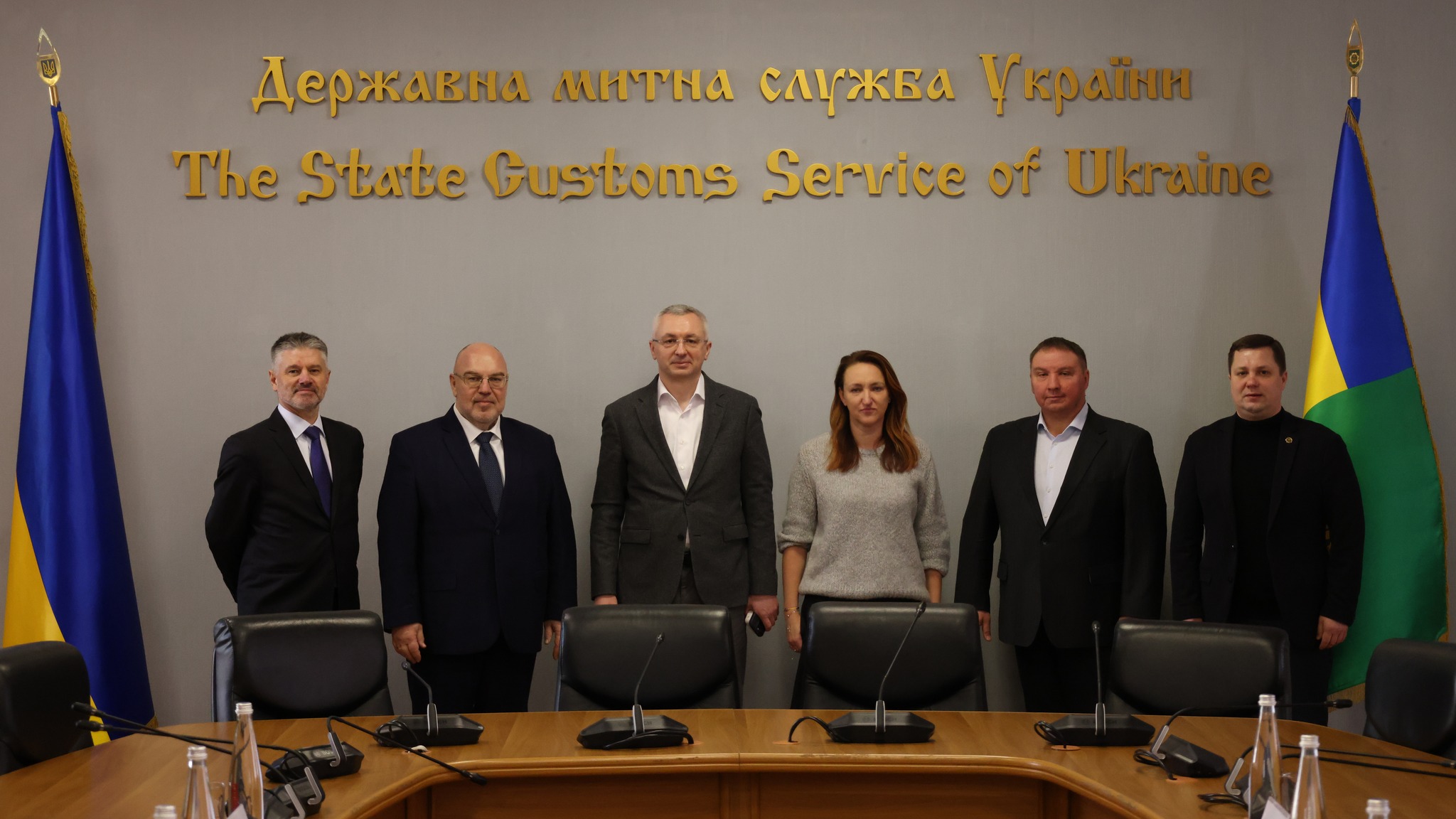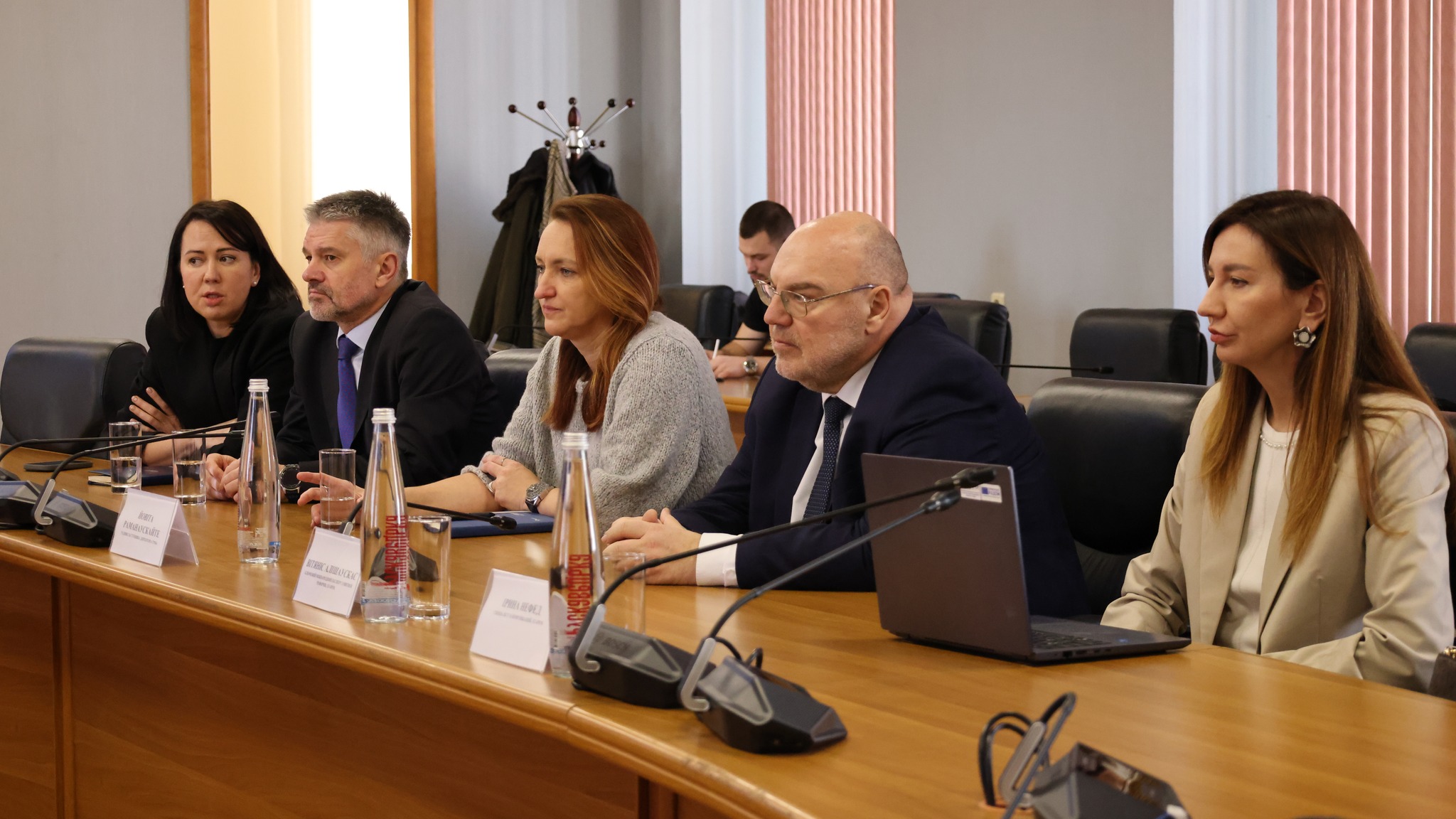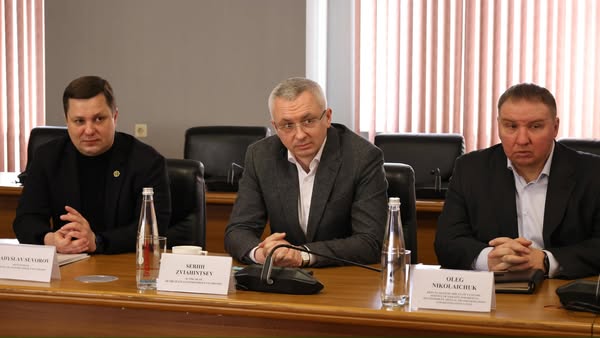EU4PFM experts collaborate with Ukrainian Customs to drive EU integration and establish an effective Customs System
EU4PFM experts met with Serhii Zviahintsev, Head of the State Customs Service. The main focus was on the strategic tasks on the path to integrating Ukrainian customs into the European framework, particularly harmonizing Ukraine’s customs legislation with EU standards and operationally integrating customs processes according to European norms.
Serhii Zviahintsev emphasized that Ukraine is already aligning national legislation with EU law under Chapter 29, “Customs Union,” and a comprehensive approach is enabling steady progress forward.
Vytenis Alisauskas, EU4PFM Key International Expert in Customs and Jacek Kapica, EU4PFM Expert in anti-corruption area, who worked at customs authorities of Lithuania and Poland respectively, during their countries’ accession to the EU, shared their reform experiences.
“We aim to pass on the practical knowledge we and our colleagues gained during our countries’ EU accession. The preparatory process is perhaps the most intense part of joining. We are ready to share our experience and provide support to Ukrainian customs. We are here as your partners, eagerly looking forward to Ukraine joining the European customs family,” said Vytenis Alisauskas.
In addition to the technical aspects of integration, the experts stressed the importance of cross-cutting reforms: integrity in customs operations, effective personnel management, and the development of a modern corporate culture. “From my own experience, I can say: anti-corruption policy is not the responsibility of one unit, but the synergy of different areas. Our histories are similar, so we’ve faced similar challenges in integrity,” noted Jacek Kapica.
At the end of the meeting, both parties reaffirmed their shared commitment to the continued presence of the EU4PFM Programme in Ukraine within the current mandate. They also expressed readiness to consider opportunities for its extension and expansion, aimed at increasing effectiveness and broadening the scope of impact.




